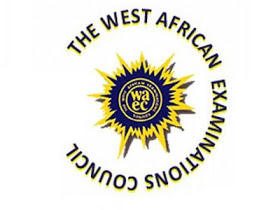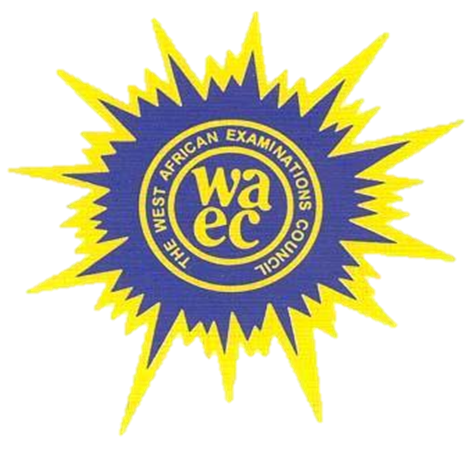NECO 2022 Commerce Obj And Essay Answer – July/Aug Expo
WELCOME TO AYOSTUFFS PORTAL BEST EXAM EVER
==================================
KEEP REFRESH THIS PAGE IN EVERY 5MIN
==================================
2022 NECO COMMERCE ANSWERS
***************************************
OBJ:
01-10: BCAEDCEBBA
11-20: CACACBDAED
21-30: EEAEEDCBAB
31-40: BABADADCDE
41-50: CBEDDACCEB
51-60: EEECCBBADC
***************************************
THEORY ANSWERS.!!
(4a)
{PICK ANY TWO}
(i) An agent cannot vote on behalf of the principal
(ii) The agent cannot give testimony in court on behalf of the principal
(iii) An agent cannot execute an affidavit
(4b)
{PICK ANY FOUR}
(i) By necessity
(ii) By Ratification
(iii) By estoppel
(iv) By Expressly
EXPLANATION
{PICK ANY FOUR}
(i) By necessity: Agency by necessity arises when an emergency situation happens. When somebody who is in possession of another person's property has to do something to preserve the property, then we have agency by necessity
(ii)By Ratification: This arises when the principal ratifies or approves the actions of a person having no authority to act as his agent. He assumes all the rights and objectives under the contract.
(iii)By implication: An agent can be appointed impliedly where the principal, without expressly conferring authority on him, place him in a situation in which it is understood by them that he can act on behalf of the principal
(iv) By estoppel: This arises when somebody by conduct or words allow another party to believe that somebody is acting as his authorised agent even where no agency was intended. He will estopped from denying the agency if the other party relies on such presentation.
(v) By Expressly: This arises when an agent is appointed verbally or in writing by the principal. The agent can now enter into contract on behalf of the principal.
***************************************
(6a)
★ DIRECT SERVICE
(i) Direct service is service paid directly by those who enjoy them.
(ii) Direct service providers render their services to people who are willing to pay for them.
★ INDIRECT SERVICE
(i) Indirect service providers render services to the general public and are paid indirectly by the general public through taxes paid to the government.
(ii) Indirect service is a government-funded service that is delivered to the general public.
(6b)
(i) Devaluation
(ii) Imposition on embargo
(iii) Import quota
(iv) Reduction of exercise duty
(v) Licence
(vi) Tariff
(6c)
(i) Regulatory Measures:
Every country wants to export its surplus natural resources, agricultural produce and manufactured goods to the extent, it can and import only these goods and products which are not produced or manufactured within the country. For this purpose regulatory measures like tariff barriers (custom duties) non-tariff barriers, quota restrictions, foreign exchange restrictions, technological and administrative regulations, consulter formalities, state trading and preferential arrangements, trade agreements and joint commissions etc. Come in the way of free trade and unfettered flow of foreign business.
(ii) Procedural Difficulties:
Different countries have evolved different procedures, practices and documents in order to regulate the export trade. Some of these such as foreign exchange control regulations and others have been formulated after keeping in view the national objectives and have posed certain procedural problems to exporters and importers.
(iii) Risk in transit:
Foreign trade involves much greater risk than home trade. Goods have to be transported over long distances and they are exposed to perils of the sea. Many of these risks can be covered through marine insurance but increases the cost of goods.
(iv) Lack of information about foreign businessmen:
In the absence of direct and close relationship between buyers and sellers, special steps are necessary to verify the creditworthiness of foreign buyers. It is difficult to obtain reliable information concerning the financial position and business standing of the foreign traders. Therefore, credit risk is high.
(v) Import and export restrictions:
Every country charges customs duties on imports to protect its home industries. Similarly, tariff rates are put on exports of raw materials. Importers and exporters have to face tariff restrictions.
They are required to fulfill several customs formalities and rules. Foreign trade policy, procedures, rules and regulations differ from country to country and keep on changing from time to time.
***************************************
(7a)
Balance of trade refers to the total value of goods sold and bought by a country during a given period, usually a year. When visible exports equal visible imports in monetary terms we have balance of trade.
(7b)
(i)Favourable Balance of Payments
(ii) unfavourable Favourable Balance of Payments
EXPLANATION:
(i)Favourable Balance of Payments: Favourable balance of payment occurs when the receipts from invisible and visible export trade is greater than payments to other countries on invisible and visible imports trade. A credit balance can be used to increase investment abroad or to add to a country's gold reserve.
(ii)Unfavourable Balance of Payments: Unfavourable balance of payments is used for a debit balance in the balance of payments. It means that payments on visible and invisible import is greater than receipts on visible and invisible export.
(7c)
{PICK ANY FOUR}
(i)Generation of revenue: Tariffs are also imposed to generate revenue for the country. Many countries derive their revenue from import and export duties.
(ii)To prevent dumping: Tariffs are imposed to prevent dumping of goods from foreign countries. This is to prevent foreign goods from being sold at prices slower than the home price.
(iii)To improve balance of payments deficit: By imposing tariffs on imported goods, the unfavourable balance of payments can be corrected because importation will be discouraged.
(iv)To prevent importation of dangerous goods: Dangerous or no harmful goods from other countries are prevented from being imported, through restriction.
(v)Employment generation: Countries impose tariffs to encourage the establishment of local industries or enhance the expansion and growth of existing ones so as to provide job opportunities.
(vii)To promote self-sufficiency: Tariffs are also imposed on imported goods to enable a country be self sufficient in production of numerous goods.
***************************************
(8a)
Communication is the transmission of messages or information from one source to another.
(8b)
{PICK ANY FOUR}
(i) It enhances contact with suppliers of goods and services
(ii) For advertisements-Businesses need to inform the public about the availability of their products
(iii) Communication is needed for payment of business transactions
(iv) Communication aids effective business management by providing the necessary information for sound decisions and also keeping staff and management well in-formed.
(v) Feedback/contact with customers Communication helps a business to interact with its customers/market re-search thus enabling firms to improve their products.
***************************************
(9a)
An economic grouping is the coming together of different countries with common economic interests and goals to promote economic cooperation and development among member states.
(9b)
{PICK ANY FOUR}
(i) To promote co-operation and development in all fields of economic activity
(ii) To raise the standard of living of the people
(iii) To increase and maintain economic stability in the sub-region
(iv) To have regional economic co-operation
(v) To abolish obstacle to the free movement of persons, goods and services between member states
(vi) To harmonize monetary policies as required for the proper functioning of the community.
(vii) To maintain political stability in the event of crisis
(9c)
(i) The Executive Secretariat:
It is responsible for coordination of the work of the Department of State internally, serving as the liaison between the department's bureaus and the offices of the Secretary, deputy secretaries, and under secretaries.
(ii) The Tribunal of the Community:
Tribunal is responsible for interpreting ECOWAS treaties. The ECOWAS Tribunal is the judicial organ of the community, It ensures that law and justice prevail in the interpretation and implementation of ECOWAS treaty.
***************************************
Completed.!!
AYOSTUFFS




Comments
Post a Comment